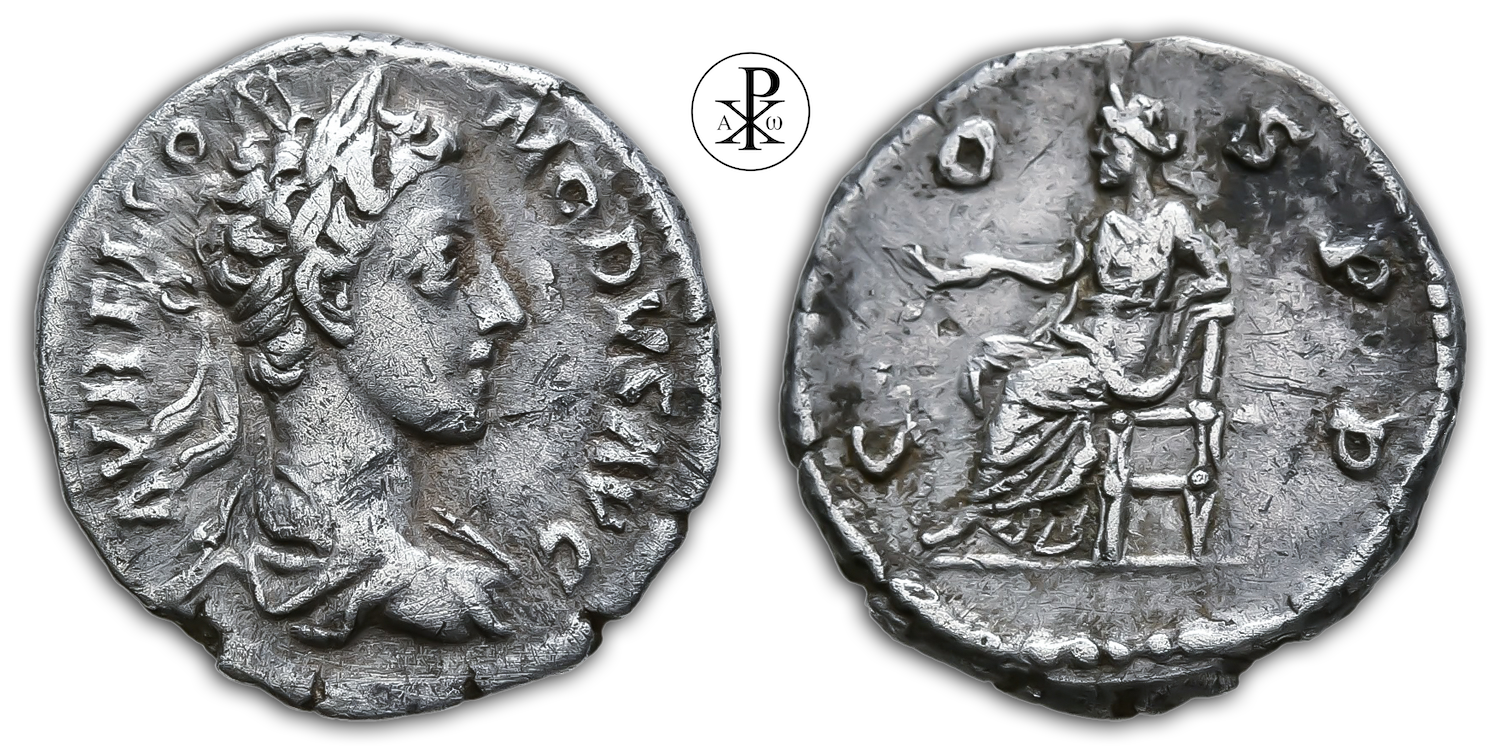Imperator Caesar Lucius Aelius Aurelius Commodus Augustus
Reign: Marcus Aurelius
Mint: Rome
Date: 177/178 AD
Nominal: Denarius
Material: Silver
Diameter: 17mm
Weight: 3.00g
Reference: Reference: RIC III Marcus Aurelius 653
OCRE Online: http://numismatics.org/ocre/id/ric.3.m_aur.653
Rare: R2
Provenance: Subastas Ibercoin Numismaticas Madrid, Spain (Auction 80, Lot 615)
Pedigree: –
Obverse: Bust of Commodus, laureate, draped, cuirassed, right
Inscription: L AVREL COMMODVS AVG
Translation: Lucius Aurelius Commodus, Augustus
Reverse: Salus, draped, seated left on low seat, holding branch in extended right hand and resting left arm on side of seat: in front of her, left, a snake coiling upwards from ground
Inscription: COS P P
Translation: Consul, Pater Patriae
Translation: Consul, father of the nation
Comment: In ancient Rome, Salus (Latin for health, salvation, welfare) referred to the personification of public welfare. In early Roman times, the idea arose to see the mystical appearance of vigorous seed growth in the personification of the Salus Semonia. Similar manifestations were also made in the other agriculturally dominated regions of Italy. Salus first enters the historical light more tangibly with the fulfilment of a vow during the Samnite War by Caius Iunius Bubulcus in 302 BC, for he had vowed a temple to the goddess on the Quirinal. From then on, it was assumed that this Salus ensured the happy continuation of the Roman polity. In Augustan times, the goddess was greatly venerated as Salus Augusta, the goddess of state and imperial welfare. Especially under Galba and Vespasian, there was a renewed renaissance of this cult, but now as a sign of state restoration after the rule of the emperors of the Julio-Claudian dynasty. She is usually depicted on coins accompanied by a snake and holding a sacrificial bowl. Sometimes she also carries a sceptre, grain and a laurel wreath.
The historical background of this silver denarius presented here and issued in 177/178 AD could be, on the one hand, the victoriously concluded first Marcomannic war, from which Marcus Aurelius and his son returned safe and sound (and through the victory also ensured the well-being of the Roman people) – or also the anticipatory wish for the well-being of the two Augusti. At the end of 177 AD there was another Marcomannic war, so that Marcus Aurelius and his son set out from Rome for the second Germanic or Sarmatian campaign on 03 August 178 AD (Comm. 12, 6) (Comm. 2, 5. Dio LXXI 33, 1. Marc. 27, 9). Here’s to Salus watching over the imperial welfare.
